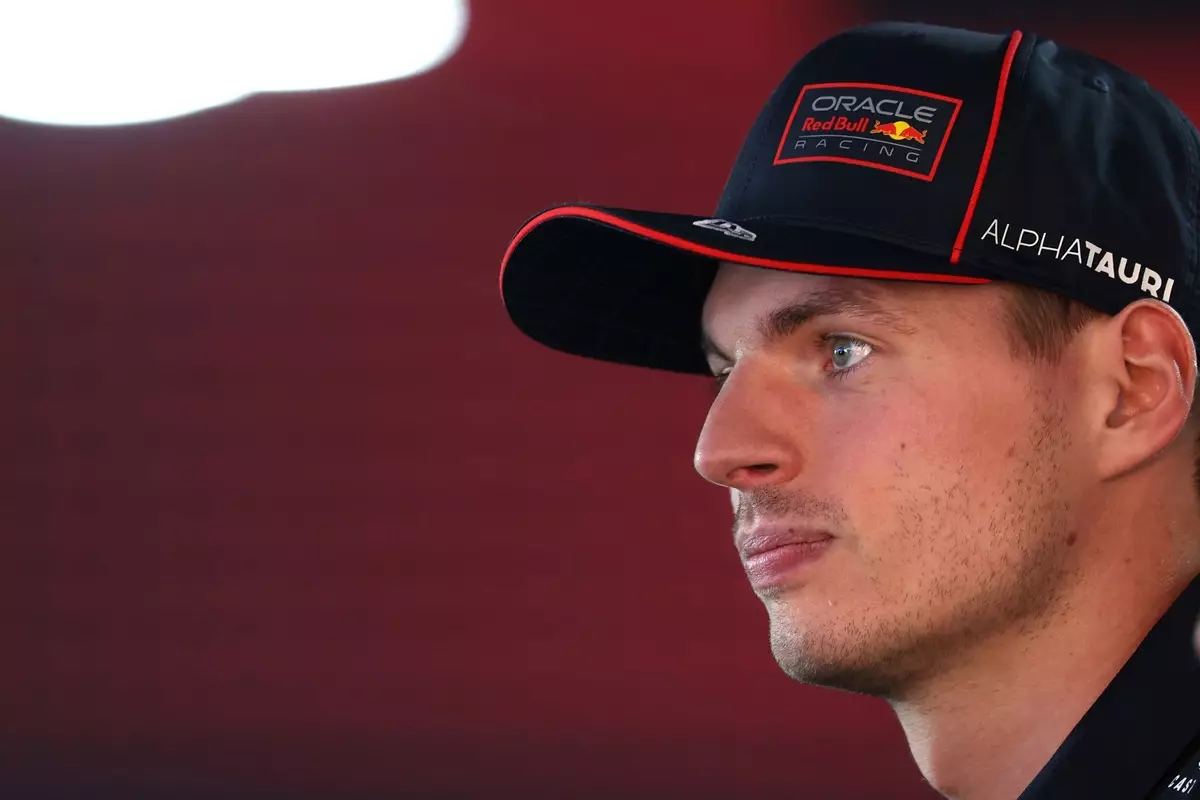Unpacking the Challenges: Verstappen Reflects on Red Bull’s Race Struggles Against McLaren
In the exhilarating world of Formula 1, where every fraction of a second can make or break a race, no one is more familiar with the challenges of competition than Max Verstappen. Fresh from a challenging performance at the Miami Grand Prix, where he finished a distant 40 seconds behind McLaren’s Oscar Piastri, Verstappen has opened up about the hurdles Red Bull Racing faces. A pole position start doesn’t guarantee triumph; rather, it highlights the stark performance gap that the team must work tirelessly to bridge.
Despite a range of upgrades planned for the 2025 car and intense development efforts, Verstappen remains realistic in his expectations. His candid admission that expecting an immediate fix for Red Bull’s race pace issues is unrealistic underscores a critical lesson in motorsport: swift changes seldom produce instant results. The complexities of vehicle dynamics, tire management, and race strategy form a complex puzzle that cannot be solved overnight or with just one set of updates.
Key Takeaways
- Red Bull Racing faces significant performance challenges against McLaren.
- Upgrades are planned but require patience for effective results.
- The team needs to understand McLaren’s success in high-degradation races.
- Maintaining morale is crucial amidst competitive pressures.
The Upcoming Upgrades and Their Implications
Red Bull’s choice to introduce a new floor on Verstappen’s RB25, with Yuki Tsunoda scheduled for the same upgrade before the European season starts in Imola, showcases a deliberate approach to development rather than hasty alterations. This meticulous upgrade strategy aims to achieve incremental improvements, yet as Verstappen notes, even small advancements demand patience. When asked about potential performance boosts, he humbly replies “a little bit,” reflecting a pragmatic outlook. High expectations can obscure judgment, especially when faced with harsh realities.

As the season progresses to Barcelona’s Spanish Grand Prix, anticipation surrounding new technical directives adds another layer of intrigue. These regulations address flexing front wings—an area where McLaren seems to excel. However, Verstappen’s skepticism about the effectiveness of these changes speaks volumes. “That will not give you eight tenths to a second,” he remarks. It’s a sober reminder that while regulatory adjustments can level the playing field, they are rarely the panacea teams hope for.
The McLaren Phenomenon: Understanding Performance Gains
The core of Red Bull’s predicament lies in understanding why McLaren has become such a formidable competitor, particularly in high-degradation races where tire management is crucial. With the potential for enhanced tire performance using Pirelli’s softest compounds at Imola, Red Bull faces an immense task: deciphering McLaren’s winning formula. Verstappen’s expression of uncertainty about closing the gap in tire management highlights a broader issue within F1’s competitive landscape.

The delicate balance between aerodynamics and tire degradation forms a complex equation that teams cannot ignore. Verstappen acknowledges this challenge, stating that gaining genuine insight into McLaren’s effectiveness may take considerable time to uncover. This frank admission not only provides insight into racing mechanics but also reflects a larger truth about motorsports—sometimes, progress requires not just technical tweaks but also a profound understanding of how car design, driver skills, and track conditions interact.
A Reflection on Team Morale and the Road Ahead
The sentiments after the Miami race, where team advisor Helmut Marko described the race pace as “depressing,” serve as a glaring reminder of the psychological barriers faced by Red Bull. The pressure to climb from what seems like a competitive abyss can dampen morale significantly. It raises essential questions about how a team maintains its competitive spirit in times of adversity. Racing is as much about mental toughness as it is about physical skill, and Verstappen’s acknowledgment of widespread “concern” within the team shows an admirable level of introspection.
As the team gears up for the upcoming race in Imola, it will be vital for Red Bull to leverage lessons learned from Miami instead of being weighed down by expectations. The reality of competitive racing means that progress is often slow and fraught with setbacks and challenges. Yet within those struggles lie opportunities for greatness. If Red Bull can overcome its current obstacles, it might not only regain its competitive edge but could also redefine Formula 1 racing once more.
Final Thoughts
In conclusion, Max Verstappen’s reflections on Red Bull’s struggles offer invaluable insights into the complexities teams face in Formula 1 racing today. From managing expectations around car upgrades to understanding competitors’ strengths and maintaining team morale under pressure—each aspect plays a role in shaping outcomes on race day. While challenges abound, they also present opportunities for growth and innovation that could ultimately fuel Red Bull’s resurgence.
Formula 1 Max Verstappen Red Bull Racing McLaren Race Strategy


Leave a Reply